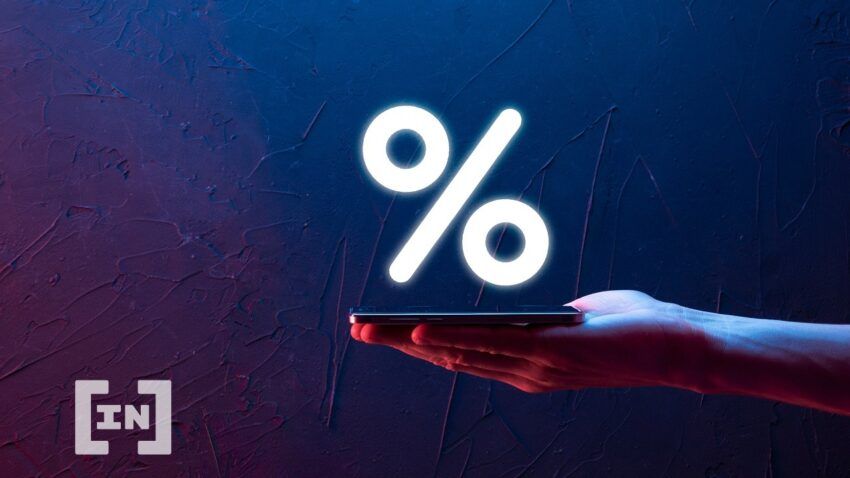Staking and the future: The liquid staking industry is at a turning point, says Simon Furlong, the Co-Founder of Geode Finance.
The various opportunities across DeFi and cryptocurrency continue to become more evident. This means that there is an increasing urgency for blockchains to scale sustainably. We’ve witnessed a near-ubiquitous trend of emerging Layer-1 platforms (L1s) adopting the Proof-of-Stake (PoS) consensus mechanism to ensure blockchain security and stability. Even Ethereum, the most established blockchain with a thriving community, recognized the inevitability and necessity of these changes. Ethereum is currently in the process of transitioning to PoS.
Staking Opportunities
Suffice it to say, the paradigm is shifting, and with great change comes great opportunity. Early adopters of Bitcoin and Ethereum technology had the good fortune of becoming miners when there was little to no cost to participate. However, as the network grew and demand increased, this income opportunity drifted further and further out of reach for the average investor. Now, the Proof-of-Stake consensus model is pressing a reset button.
The opportunity to engage in staking, for example, opened the doors to smaller investors who were priced out of the energy-intensive mining process long ago. Furthermore, the PoS consensus model opened up the market to a new generation of crypto investors and enthusiasts. They were eager to explore an exciting environment and were enticed by the promise of financial freedom.
Staking assets allowed participants to passively earn income, while helping validate the blockchain network. Staking provided a layer of income generation not available to speculators. It proved to be a low-risk, consistent-yield generation option for investors looking to insulate themselves from inflation and earn interest on their assets.
The Proof-of-Stake mechanism would prove to be bigger and more significant than its surface-level benefits indicated. For those who believed in the power of blockchain-based technology, the shift from Proof-of-Work (PoW) to PoS granted once-in-a-lifetime opportunities. It encouraged them to craft their vision for the future, and helped maintain the ethos of decentralization.
Liquid Staking
The Proof-of-Stake mechanism delivers an entirely new industry that allows users to forgo the minimum deposit for validator creation. And, it pools funds with other participants to take advantage of the staking yields. Protocols managing the staking process on the user’s behalf also removes the technical knowledge needed, allowing anyone to participate.
All liquid staking providers to date have focused on one thing. This is attracting users to stake with their solution to increase their TVL and revenue (from the fees they generate from their staking yield).
Composability for these staking derivatives has only recently gained traction, now that significant market caps have been reached. This retail-focused approach has worked tremendously for some of the bigger players in the industry. But, it is starting to threaten the security of the very industry they have helped to create.
Liquid staking’s domination by a handful of key players is a risk to network security. This is especially if any of these protocols become too big to fail. The lack of competition in the space also allows for very high fees (10% of yield) to become the norm.
One of the advantages of PoS for most networks is the fact that it allows for anyone with the funds and the technical knowledge to run a validator and to secure the network. This promotes decentralization and diversification of the validator network. It reduces regulatory and third-party risks from the system. However, if liquid staking protocols grow too large, both of these very important principles start to become threatened.
It didn’t look like the current liquid staking industry had a solution to this potential threat, until now…
The Evolution of the Liquid Staking Industry
Geode Finance, a multi-chain PoS protocol is looking to transform the way we view liquid staking. Instead of relying on a handful of liquid staking providers, Geode enables each and every DAO the power to run their own liquid staking product. This is by providing them with their own liquid staking infrastructure. The goal of this is to remove the oligopoly that exists within the liquid staking industry. And, increase the decentralization and diversification of the validator network for a given chain.
Not only does this benefit the networks where Geode Finance operates, but it has huge implications for the DAOs themselves.
- Fee revenue, TVL and all the value captured from liquid staking stays with the DAO.
- Yields can be increased across the board as each DAO can integrate their own staking derivative within their own products and services.
- The DAO controls the funds, removing third party risks and opens the door for wider treasury management.

DAO-First Approach
This DAO-first approach is a powerful one and is set to flip staking on its head. Instead of having only a few large staking providers to choose from, every DAO can offer its own solution to its users.
Staking derivatives will be common across all DeFi applications, and fees for users will go down as competition increases. We could even see DEXs creating liquidity pairs against their own staking derivative. If successful, this vision will boost yields across the board for both DAOs and their users.
So, why haven’t DAOs jumped on this opportunity before? DAOs generally don’t have the time or resources to create their own liquid staking solution. It’s also not necessarily part of their core business. B2B protocols are becoming more prominent within the Web3 space. They are helping DAOs unlock additional value that would not, and could not, be unlocked otherwise.
The liquid staking industry is at a turning point. And with everyone building in this current bear market, the next bull run could look substantially different to the one before it. It will be one where staking derivatives are the norm and base assets are reserved for gas.
About the author

Simon Furlong is the Co-Founder of Geode Finance, a white label liquid staking protocol for DAOs and DeFi protocols. Simon has more than a decade of combined experience in the financial, digital product, and media rights sectors, working previously as a risk analyst, product lead, and media rights director. His professional experiences and passions have inspired his mission to build products that support the growth of an efficient, decentralized, and vibrant Web3 ecosystem.
Got something to say about staking or anything else? Write to us or join the discussion in our Telegram channel. You can also catch us on Tik Tok, Facebook, or Twitter.
Disclaimer
In compliance with the Trust Project guidelines, this opinion article presents the author’s perspective and may not necessarily reflect the views of BeInCrypto. BeInCrypto remains committed to transparent reporting and upholding the highest standards of journalism. Readers are advised to verify information independently and consult with a professional before making decisions based on this content. Please note that our Terms and Conditions, Privacy Policy, and Disclaimers have been updated.


